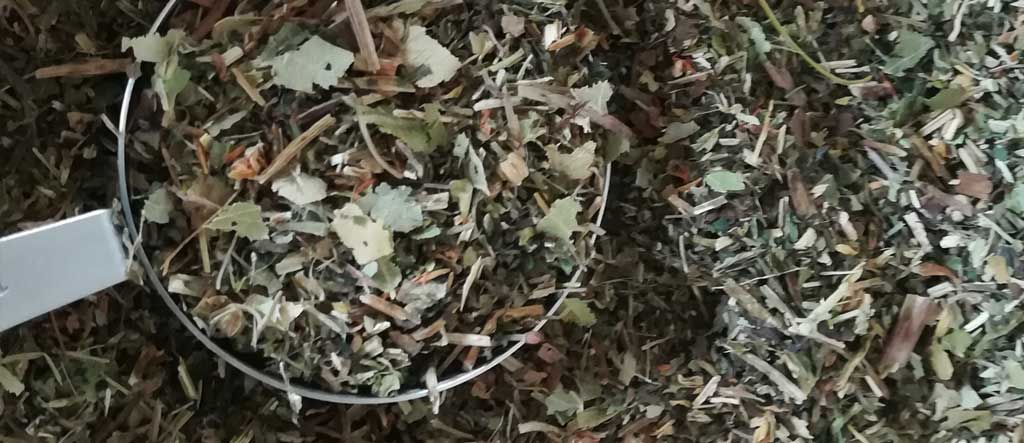Getting into the habit of regularly drinking herbal infusions can help to reduce the symptoms of stress. The simple act of making an herbal infusion is relaxing. Combining leaves, stems or flowers with hot water and allowing it all time to infuse, is for me, an act of love. It is an offer of comfort and a way to deeply nourish ourselves.
If you are looking for a way to help manage stress and anxiety, establishing an herbal infusion ritual for yourself is one of the best ways I know. It has gotten me through times of grief and sadness, stress and anxiety, as well as good times and much appreciated quiet moments. Whether I am tense and wired or exhausted and apathetic, I can think of an herb to brew that will help restore balance.
The nervous system inter-connects mind and body. It is like the conductor of an orchestra, where the instruments are the various organs and systems within the body. If we are too tense we can experience muscle spasm, pain and numbness due to reduced circulation or blockages. On the other end of the spectrum, if we are too lax we will have poor tone, slow physical and mental response times, and be apathetic in general.
Aromatic herbs for stress
Aromatic herbs are known to influence heart rate variability and neuromuscular tone, think of aromatherapy. Adding herbs that have a strong scent to your teapot can add another layer of relaxation; just make sure to keep your pot covered as it infuses to prevent volatile oils from escaping. Aromatic herbs such as lavender, rose, peppermint or rosemary also add flavour. I also use spices such as cloves, ginger, anise and cardamom seeds.
Bitter herbs for stress
The majority of herbs that act on the nervous system are bitter. They help to bring the autonomic nervous system out of ‘fight or flight’ or ‘freeze’ to ‘rest and digest’ mode. The taste of bitter stimulates and tones the vagus nerve, which helps the body switch between sympathetic and parasympathetic mode. Chronic stress can weaken the vagus nerve and make it difficult to switch back to parasympathetic mode, which can increase your risk of developing digestive, cardiovascular and respiratory problems, Type 2 diabetes, anxiety and depression.
We can all benefit from drinking a daily herbal infusion.
Herbal blends for stress
If digestive upsets feature as a symptom of stress for you then Chamomile, Ginger or Lemon balm are popular choices to calm cramps, a nervous stomach and other upsets. Prolonged stress can impact the immune system, an herbal infusion of Lemon verbena with Thyme, a pinch of lavender also goes nice here, will help to reduce oxidative stress, inflammation and fight infections. If increased stress levels send your blood pressure soaring, a combination of Lemon verbena and Hibiscus flowers is a nourishing combination. Motherwort, Linden flowers and Roses are also good for the heart under stress.
Milky oats are recommended for anyone dealing with nicotine or other addiction withdrawal symptoms. The real value in Milky oats is that they are a nourishing food for the brain and nervous system. Skullcap excels in restoring the nervous system, however you will need to be drinking a daily infusion for at least three weeks to feel the benefits.
Relaxing nervines: Hops, Wild lettuce, Catnip, Chamomile, Lemon balm, Linden flower, Motherwort, Passionflower, Wood betony
Tonic nervines: Milky oat seed, Skullcap, Gotu kola, Borage, Blue vervain and Damiana
Aromatic additions: Lavender, Hyssop, Rose, Chamomile, Citrus peel, Sage
If you want to order some herbal teas visit my online shop. If you don’t see what you want please email me.
